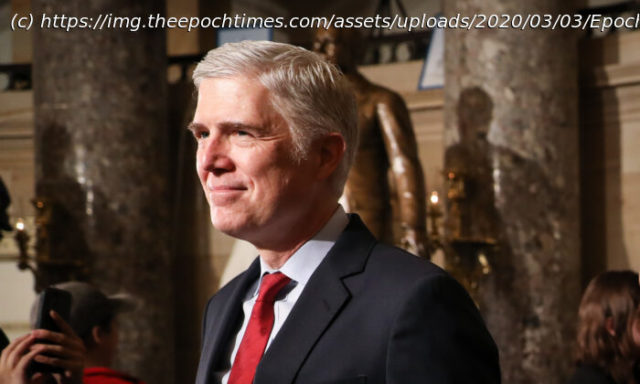Array
The Supreme Court seemed receptive Dec. 5 to the arguments of a Christian website designer who says Colorado’s law requiring her to create websites to celebrate same-sex weddings infringes on her constitutional rights.
Although the Supreme Court has become increasingly protective of religious freedoms in recent years, those on the left say the court’s embrace of religious freedoms is coming at the expense of LGBT rights.
The case is 303 Creative LLC v. Elenis, court file 21-476. The respondent, Aubrey Elenis, is being sued in her official capacity as director of the Colorado Civil Rights Division.
At the hearing, the Biden administration, represented by Deputy U.S. Solicitor General Brian Fletcher, argued in support of the Colorado law.
Left-wing activists have been targeting bakers for years for political purposes, asking Christian confectioners opposed to same-sex marriage to bake wedding cakes for gay marriage celebrations. When the bakers refuse to make the cakes, these activists sue under anti-discrimination laws, hoping to secure favorable legal precedents.
In Masterpiece Cakeshop v. Colorado Civil Rights Commission (2018), the Supreme Court sided with Jack Phillips, a Christian baker whom a gay couple had asked to create a custom cake to celebrate their union, finding a state human rights commission had violated his First Amendment right to free exercise of religion.
But in the case at hand, artist and website designer Lorie Smith of 303 Creative is being singled out by the same Colorado human rights commission because, based on her religious faith, she doesn’t support nontraditional marriage. Smith has said she will design custom websites for anyone, including those who identify as LGBT, so long as their message doesn’t conflict with her religious views. This means that she won’t promote messages that condone violence or encourage sexual immorality, abortion, or same-sex marriage. When clients want such messages expressed, Smith refers them to other website designers.
Smith took action when she discovered she was forbidden under the Colorado Anti-Discrimination Act (CADA) to post a statement online explaining what content she was, and wasn’t, willing to create.
Home
United States
USA — mix Supreme Court Sympathetic to Christian Web Designer Who Opposes Colorado Law Forcing...






